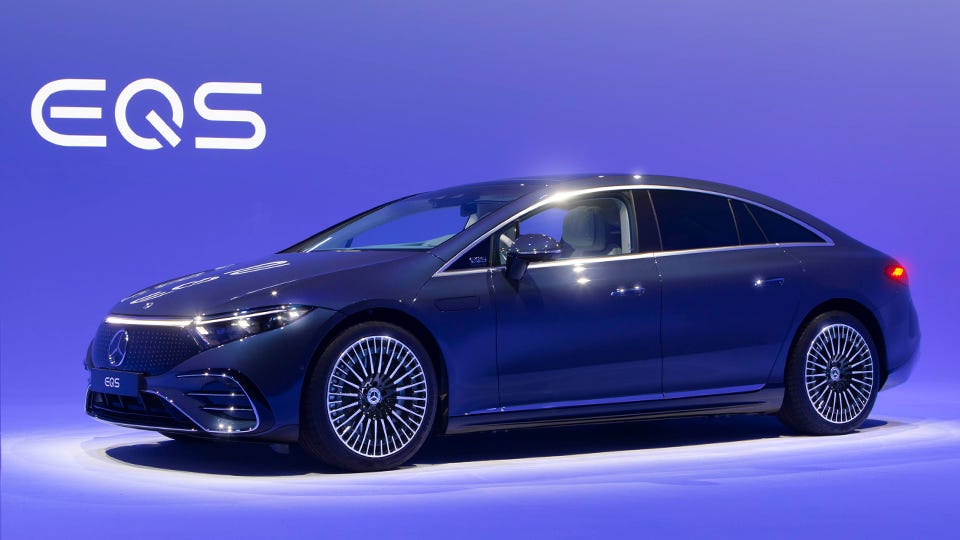New law revamps electric vehicle credits (Image above is of Mercedes EQS, built in Tuscaloosa)
Are you thinking about purchasing an electric vehicle (EV) or plug-in hybrid? The new Inflation Reduction Act (the IRA) green lights tax credits for many taxpayers who buy EVs in 2023. However, other individuals may hit some unexpected roadblocks.
Background: Currently, a tax credit is available for EVs, including plug-in hybrid vehicles, that meet certain energy consumption standards. The maximum credit is $7,500, regardless of cost. The credit is claimed on the tax return for the year in which you purchase the vehicle.
In addition, you must meet other technical requirements, including a limit on the gross vehicle weight rating (GVWR). Also, the vehicle has to be used predominantly by its original purchaser. In other words, the credit cannot be claimed on a resale.
The IRS regularly updates the list of vehicles that qualify for the credit. Visit its website for more detailed information about the various models.
Caution: Under prior law, the credit begins to phase out for a manufacturer’s vehicles when it has sold at least 200,000 qualifying vehicles for domestic use. Tesla, GM and Toyota have already exceeded this limit.
Furthermore, the credit is nonrefundable. For example, if you show $5,000 in tax liability on your 2022 return and you qualify for a $7,500 credit, it is limited to $5,000. Finally, the credit is only available to the owner of the vehicle. Lessees do not qualify.
New rules: The IRA includes the following key provisions relating to tax credits for EVs.
- The credit cannot be claimed by single filers with a modified adjusted gross income (MAGI) above $150,000 or an MAGI or $300,000 for joint filers.
- The credit is not available for most passenger vehicles that cost more than $55,000. The limit is $80,000 for vans, sports utility vehicles (SUVs) and pickup trucks.
- The vehicle must be powered by batteries whose materials are sourced from the U.S. or its free trade partners and must be assembled in North America.
- The 200,000-vehicle threshold for manufacturers is eliminated. However, this restriction still applies for vehicles purchased in 2022.
- If you qualify for the credit, you may get instant gratification though a price reduction at the time of purchase. But it appears that this tax break will not be implemented until 2024. The IRS is expected to issue guidance shortly.
Tax break for used vehicles: Notably, the IRA also provides a credit of up to $4,000 for purchasers of used vehicles under a separate set of rules. For example:
- The credit is available to single filers with a MAGI of no more than $75,000 or $150,000 for joint filers.
- The vehicle cannot cost more than $25,000.
- The vehicle must be at least two years old.
- The purchase must be the first sale of the used vehicle by a licensed dealer.
- You can only claim the credit once every three years.
As you might imagine, the new IRA rules complicate matters for potential purchasers of EVs. Besides getting all the car facts, find out the tax facts for your situation. Your JMF professional advisors can provide the “roadside assistance” you need.







Leave A Comment
You must be logged in to post a comment.